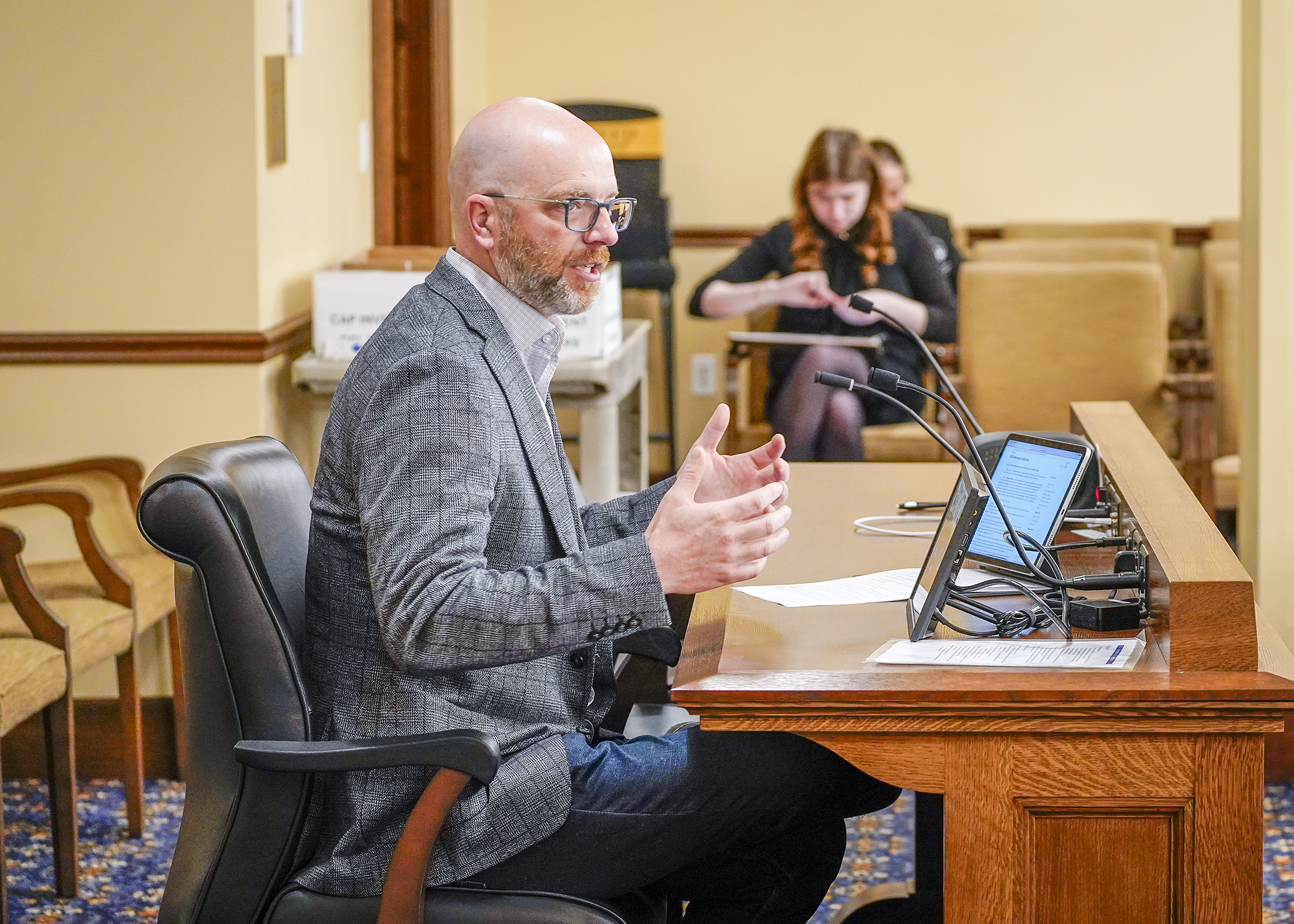House bill seeks to require maintenance plans for state-funded capital projects

Rep. Brad Tabke (DFL-Shakopee) wants to save Minnesota time and future money by encouraging municipalities to have a plan for maintaining capital projects for which they receive funding.
Tabke sponsors HF2418 which, as amended, would require applicants for capital project funds to share whether they have a plan for maintenance and preservation of the project, including safety and security, maintenance and utility costs, availability of repair parts and materials and sustainability.
“The goal here is to make sure that it’s very clear that communities are in charge of the maintenance and of the preservation of that project once the state and taxpayers of Minnesota have invested in it,” he said.
The former mayor of Shakopee, Tabke told the House Capital Investment Committee how the city set up a fund to plan for the maintenance and upkeep of their own capital projects. He now wants to encourage other municipalities to do the same.
“What we’re trying to do … is have the same concept for anything that has bonding so that we don’t have continued coming back for additional money for maintenance programs and for other safety programs,” he said.
The committee laid the bill over Wednesday.
Committee Co-chair Rep. Fue Lee (DFL-Mpls) believes the bill would save Minnesota a lot of money.
“When you have a $40 million bridge and you have a capital improvement plan, you should have a plan in place to take care of it and not come to the state,” he said. “There are projects out there that are very costly, and if there’s no plan to take care of it and 30 years, 40 years down the line, they’re asking the state to fund for it again, is that really good for the state of Minnesota going forward?”
The original bill would have required grantees to establish a capital project plan for their project, something Rep. Mary Franson (R-Alexandria) said many small communities don’t have the ability to do.
A committee co-chair, Franson supports the bill after the delete-all amendment changed the language.
She also questioned what would happen with a grant application if, for example, a small community didn’t have a maintenance plan in place for a project. “Would the intention be to not fund those projects?”
Tabke replied that the data provided would simply allow the committee and members to know if there is a plan in place. “I am of the opinion that if projects are not able to be maintained by that local jurisdiction, that they probably shouldn’t be coming through.”
A maintenance plan would not be required for major capital projects like wastewater treatment and sewage projects, Tabke said.
Franson encouraged him to add that language to the bill.
“What I don’t want is for a city to come forward for a water infrastructure issue or sewer issue and they just don’t have the population or the tax base to support and us saying, ‘Sorry, you’re out of luck.’”
Related Articles
Search Session Daily
Advanced Search OptionsPriority Dailies
Legislative leaders set 2026 committee deadlines
By Lisa Kaczke Legislative leaders on Tuesday officially set the timeline for getting bills through the committee process during the upcoming 2026 session.
Here are the three deadlines for...
Legislative leaders on Tuesday officially set the timeline for getting bills through the committee process during the upcoming 2026 session.
Here are the three deadlines for...